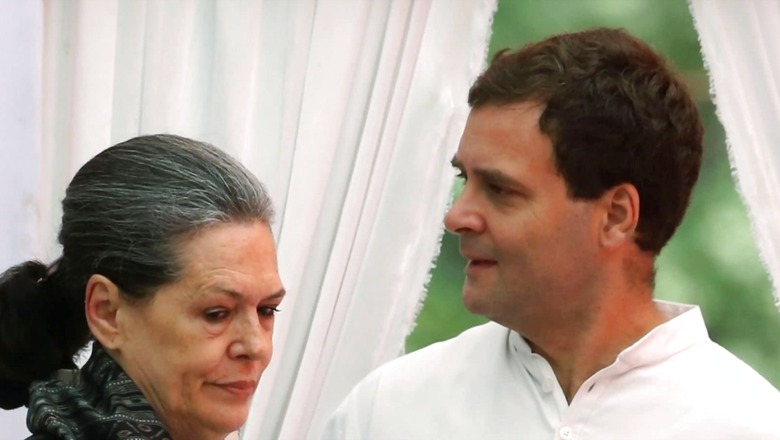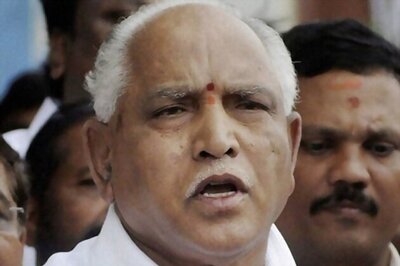
views
If racism and colonialism continue to bedevil conversations in Britain and India, the confusion surrounding them and the convoluted sense in which they are understood becomes ever more evident as time goes by.
This is hardly surprising when one considers that, just as the terms refer to large phenomena, their actual object of reference has never been so clear. One event which is a candidate for memorialising the muddle is the current contest for the leadership of Britain’s ruling Conservative party, and hence the successor to Boris Johnson as UK’s prime minister.
Lord Rami Ranger, a businessman of Indian origin who inhabits the House of Lords, and enjoys the co-chairmanship of the Conservative Friends of India, was among the first to voice the idea that racism was playing a role in the election of the Conservative party’s leader, though his language was carefully chosen to conform to parliamentary idiom; he actually said that this is how it would be seen should Rishi Sunak not be elected by the party’s membership. Even so, he was castigated for saying it.
To say publicly that racism has not disappeared from British life is somewhat like pointing to the absence of the proverbial emperor’s clothes. It is Britain’s tolerance that is to be applauded, not its racism called out. Having little choice in the matter — and avoiding opening a whole other front in the leadership debate — Sunak has chosen to go along with the racism-plays-no-role hypothesis.
Shashi Tharoor, a Member of Parliament in India, has entered the fray more recently, bluntly stating that, of the two candidates, Sunak is more competent. In Tharoor’s eyes, the likely choice of current foreign secretary, Liz Truss, could only be explained by the lingering racism among the British public.
True enough, among the many credentials Truss has been acquiring is that she has been embarrassed by both her Russian and Indian counterparts, as well as President Emmanuel Macron, for gaffes she has made. Of this, we will no doubt be seeing a great deal more. A read of Michael Ashcroft’s gripping biography of Sunak, Going for Broke, confirms Sunak’s reputation as intelligent, hardworking, inquisitive and attentive to detail, a view unanimously shared by those who have worked with him closely.
Although Tharoor’s diagnosis seems incontrovertible, I had to part company with him at the point he goes on to cite Sonia Gandhi’s non-admission to premiership as an example of Indian xenophobia, and how India could learn much from Britain’s gradual opening up of parliamentary careers and the conferment of some of the highest offices of state to non-white people. Sunak is one of them, of course, having only just resigned from the post of Chancellor of the Exchequer, an office the so-called campaign for plain English hasn’t yet re-baptised as the finance ministry, which is what it effectively is.
What rankles in Tharoor’s take is that Britain’s receding racism should constitute a lesson for India. This seems flawed on several counts. Sonia Gandhi did not lose the election to be leader of her party but instead her party twice gained the largest number of Lok Sabha seats under her leadership. In this, it may be impossible to discount the benefit of deference routinely accorded to white Europeans in India.
Doubts were raised about her eligibility for the premiership because of uncertainty about her Indian citizenship status which, if it had been proved to be incorrectly and unlawfully acquired, would have become an embarrassment to her, her party and the country as a whole. Sonia Gandhi’s stepping back made Manmohan Singh an accidental prime minister. As Chinese tradition would have it, far from relinquishing power, she took to ruling from ‘behind the curtain’.
Granted that her Italian origin itself may have stood against Sonia Gandhi, at least among some of her opponents. As a historian of colonialism in India, Tharoor would be only too aware of Indian tetchiness about conferring the highest political office to a European when the country had not so long ago become liberated, not only from the British, but from colonial rule by France and Portugal.
Not only is the example of Sonia Gandhi not well chosen, holding up Britain as a country India must look to is also somewhat inappropriate. As a cultural phenomenon, it is very much open to doubt whether racism is something that makes sense outside of the Western culture. After all, it is the Western culture which has conceived of terms such as race, racism, and their derivatives.
Attempts to oppose racism in the West also appear to take race as a given marker in ways that are difficult for non-westerners to grasp. We hardly grasp why it is that caste was taken by westerners to be an outcome of different races coming together in India, and the policy consequences of such models have been disastrous for India. Islamophobia is now being pushed as a form of ‘racism’ that Indians are supposed to practice, but such preposterous claims tell us something about those pushing them rather than telling us anything about Indian culture and its alleged ‘racism’.
A more obvious problem in Tharoor’s recommendation is that while Sonia Gandhi’s possible premiership could well have attracted unease by an Indian public that had liberated itself from European colonial rule, Sunak is hardly in such a position. If anything, the mountain he must climb is admission to the highest office despite his being a descendant of once-oppressed colonial subjects. Because he is evidently the better candidate for the job, his non-admission can only invite the conclusion about Britain’s racism that both Rami Ranger and Shashi Tharoor have probably correctly reached.
Read all the Latest Opinion News and Breaking News here



















Comments
0 comment